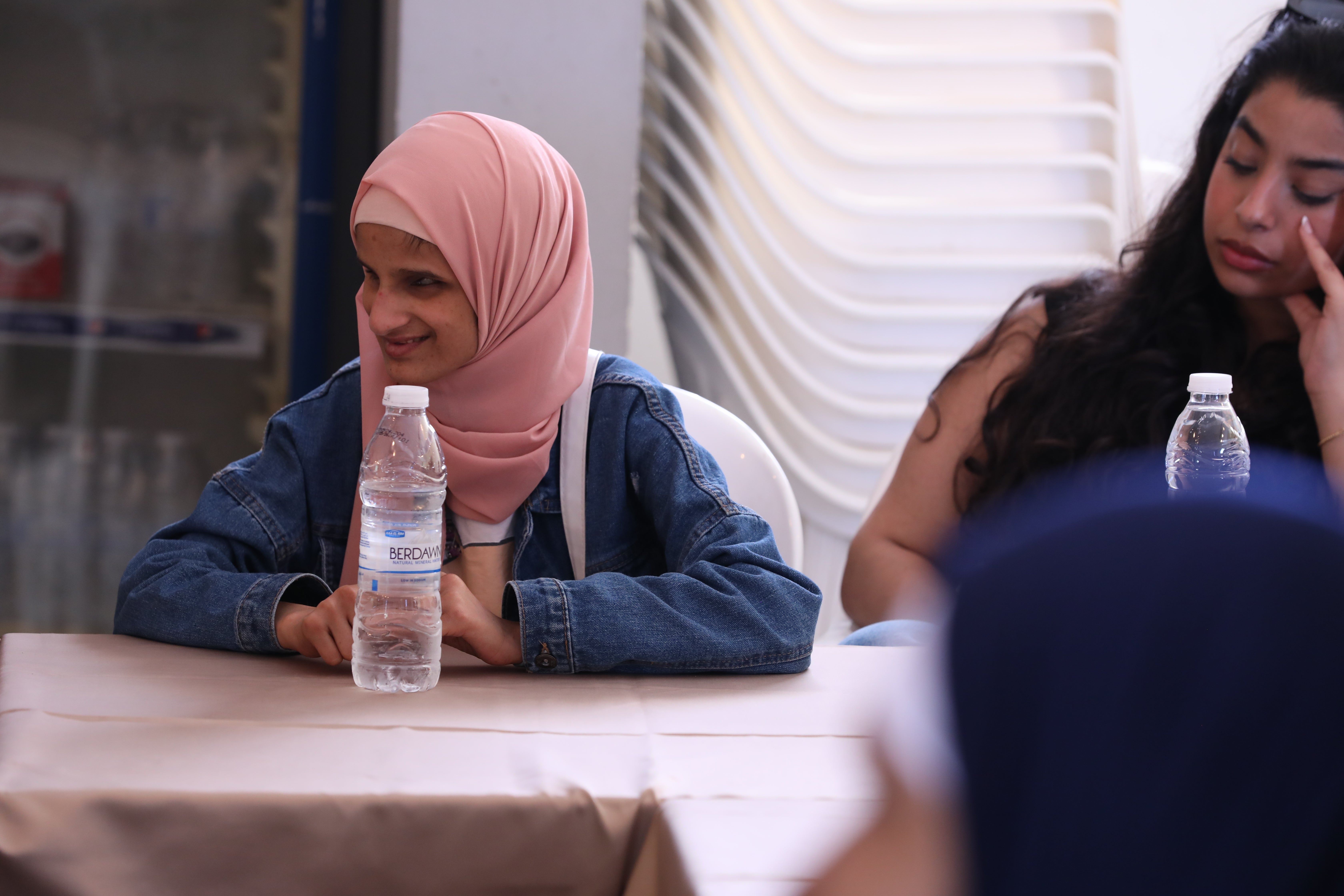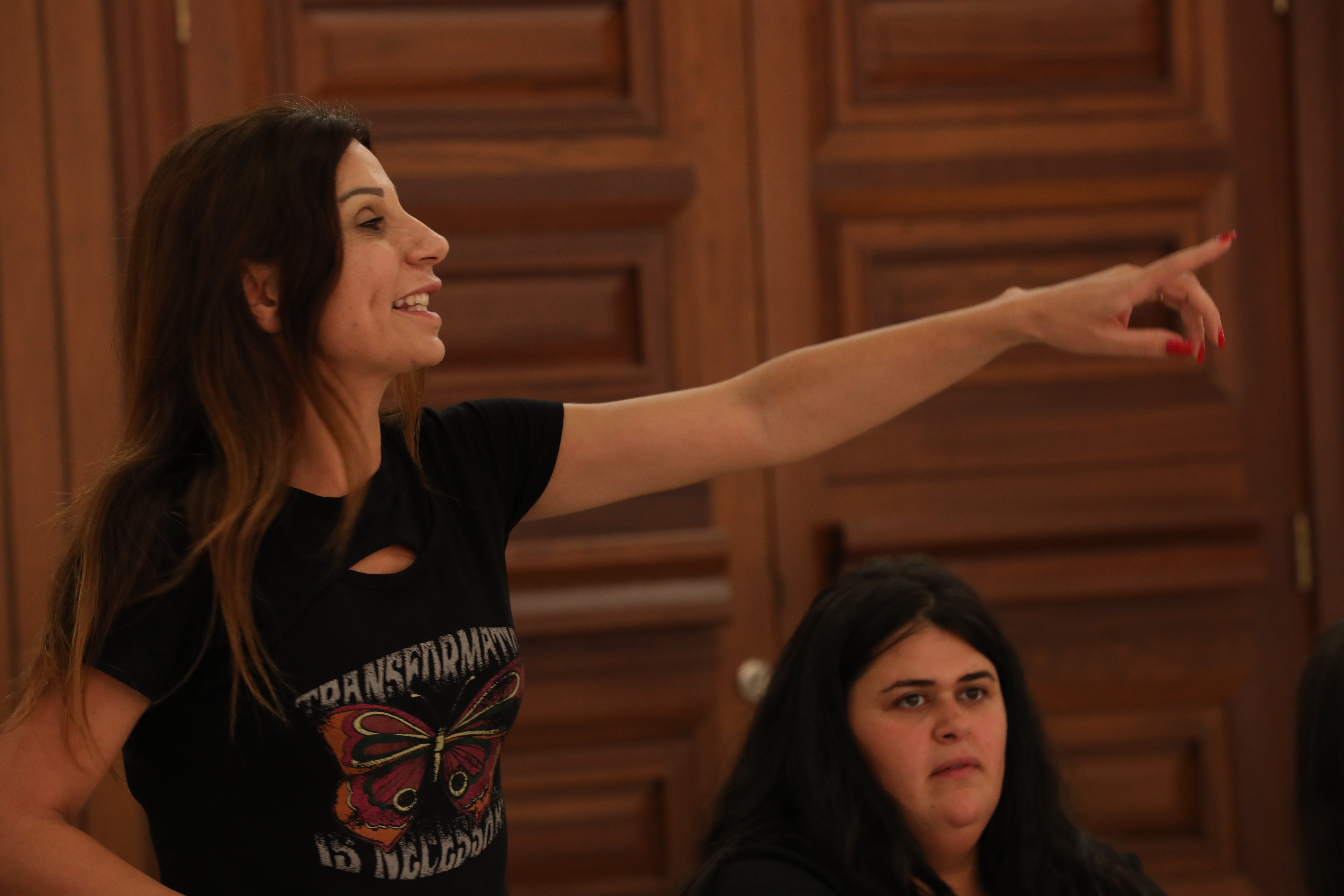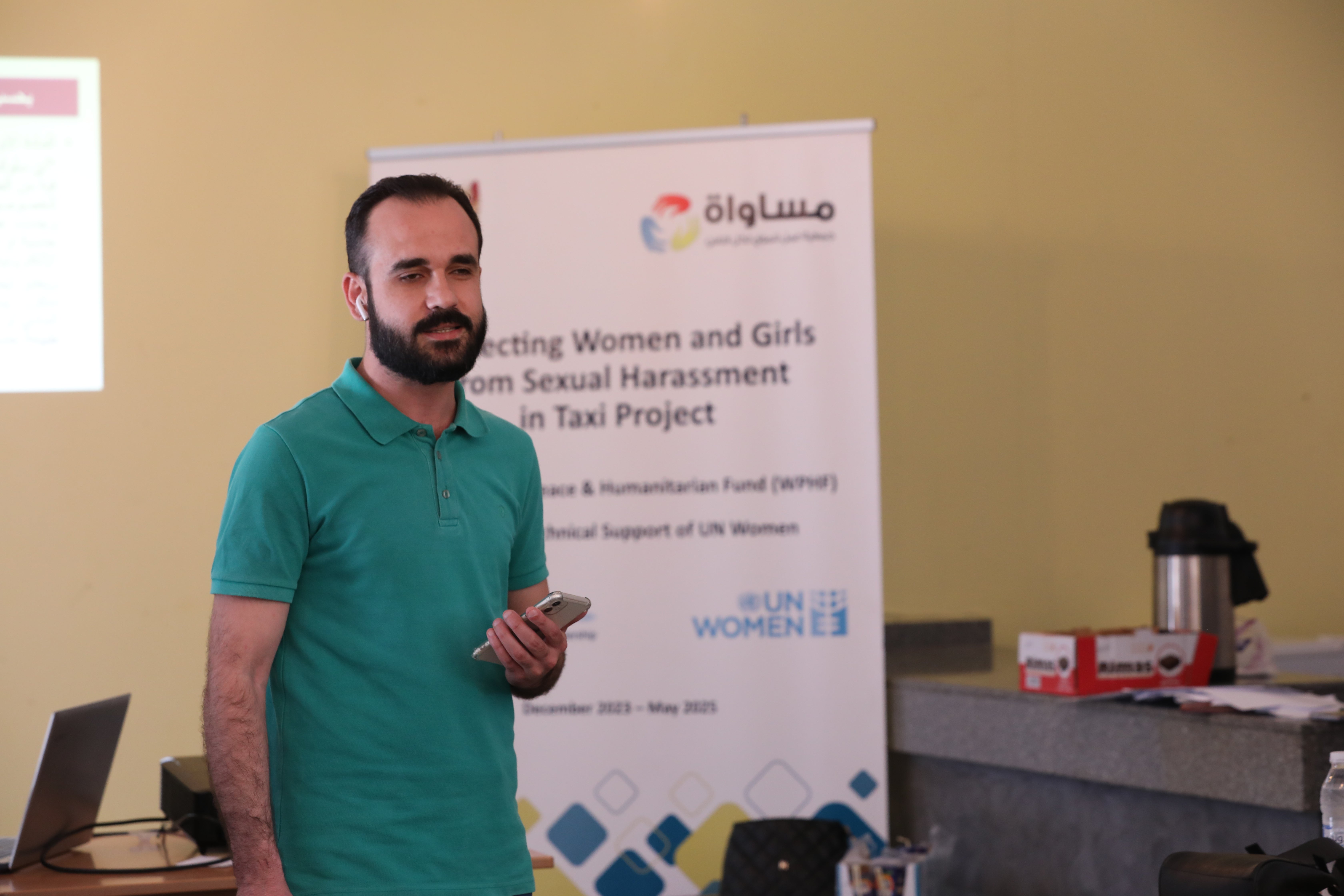People with disabilities inform app for reporting harassment in Lebanese taxis
Date:
When Mousawat – a Lebanese civil society organization focused on human rights advocacy – began working on an innovative reporting tool to combat sexual harassment in taxis, they knew it had to be shaped by those most affected.
To ensure a comprehensive and inclusive approach to the development of the Ishtaki app, Mousawat partnered with the Forum for the Rights of Persons with Disabilities (FRPD) to ensure the active participation of women leaders from various civil society organizations. Among them were 45-year-old Eliana Sassine and 21-year-old Helmiya Al Masri.
“Often, people with disabilities are overlooked in such initiatives, but through our collaboration with the Forum – whether in the training sessions or the app discussions – they truly listened and valued our input,” says Al Masri, who is completely visually impaired. “Being invited to contribute to Ishtaki made me feel included and respected … and I’ll be the first to use it.”

She calls the app a vital resource for women, especially those with disabilities: “It helps us claim our basic rights while ensuring our safety. This app gives us a powerful and safe tool, which is incredibly empowering.”
During the consultations, Sassine and Al Masri suggested accessibility features like audio commands and the ability to enlarge text for partially blind users.
Sassine, 45, a psychology student at the Lebanese University, and the gender-based violence focal point at FRPD, draws strength from her lived experience as a woman with partial visual impairment
“Not all people with visual disabilities are the same … I felt my strength in creating change," she shares, reflecting on her journey from enduring discrimination to becoming a public advocate. Her contribution to the app’s accessibility features discussions began after attending a training conducted by Mousawat for individuals with visual impairments.
Sassine says the app’s potential to encourage reporting while ensuring user anonymity makes it a vehicle for empowerment. But she says systemic hurdles must also be addressed, noting the need for stronger laws, awareness campaigns, educational reforms and mandatory courses on disability rights.
Al Masri adds that cultural barriers and discrimination are the root causes of violence against women with disabilities. “Changing the culture is essential to improving our lives,” she says, adding that she hopes Ishtaki will drive long-overdue action.
Sassine echoes these sentiments: “We must collaborate with men to shift societal narratives and create meaningful change.”

As these two inspiring women continue their activism journey, their message is clear: “Women and people with disabilities may be seen as the weakest, but we are the strongest because we have a cause to fight for,” Sassine declares.
Meanwhile, Al Masri intones: “Believe in yourself and stand up for your rights, so your voice will be heard.”
Supported by UN Women and the Women’s Peace and Humanitarian Fund (WPHF), Mousawat led the implementation of this project, in collaborating with the Tripoli Bar Association, FRPD and the Drivers Syndicate.
Mohammad Younes, General Director of Mousawat, says the FRPD’s involvement truly broadened the scope of the discussions, bringing fresh perspectives and depth: “As always, the participation of individuals with disabilities elevates the quality of any work we do. Their input adds immeasurable value, enriching our efforts and making them more impactful.”
Men with disabilities were also involved and have been championing change. Omar Al Sherif is Educational Programme Coordinator at FRPD and also is also visually impaired. He participated in the stakeholder discussions, as well as training-of-trainers sessions under the project, and has since conducted several workshops and discussions with his peers and the local community.

"Every member of society has a role to play in tackling harassment, whether they are men or women,” says Al Sherif. “Harassment isn’t just a gender issue – it’s about power and control. It’s the strong preying on the weak… As a man, I know I have the power to influence and advocate for an end to harassment, especially in public transportation.”
Al Sherif’s inputs to the discussions about the Ishtaki App focused on how it could be made more accessible for people with visual impairments. He also raised the problem that many taxi drivers aren’t registered with the syndicate, making it hard to hold them accountable.
“We cannot afford to remain passive. It’s on all of us to push for change and free our society from these harmful phenomena,” he adds. “The Mousawat project is an urgent response to a growing issue, as harassment has been on the rise not only in Tripoli but across Lebanon.”